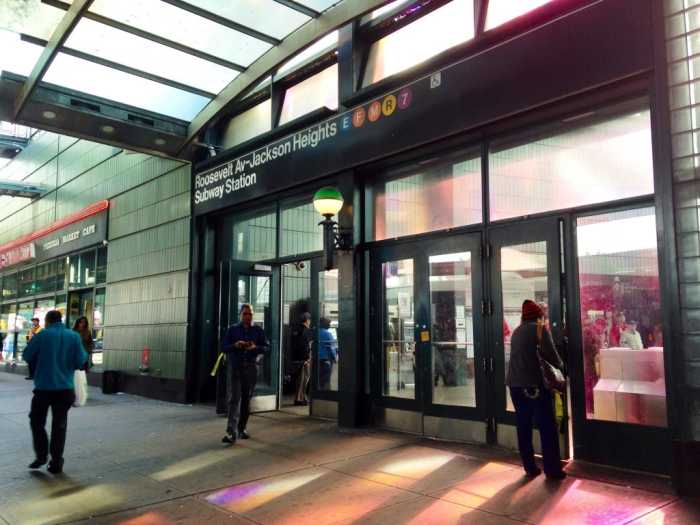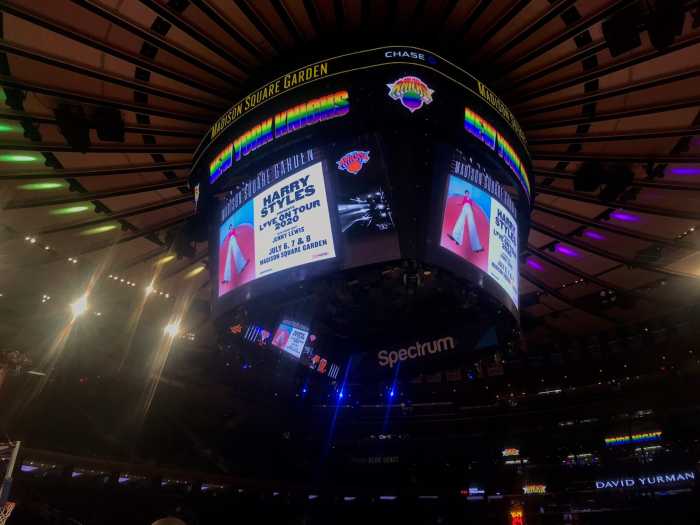By Albert Amateau
Negotiations between the Independence Plaza North Tenants Association and Laurence Gluck, the new owner of I.P.N. who intends to take the Tribeca complex out of the Mitchell-Lama program at the end of June, show signs of progress, according to Neil Fabricant, tenant association president.
After a long negotiating session on Thurs. Feb. 19, Fabricant said that there was a potential for agreement. “We have another meeting Tuesday [Feb. 24] when we hope to know more,” he said.
A spokesperson for Gluck and his company, Stellar Management, also had an optimistic spin on six previous meetings between the landlord and tenants. “There was a meeting on Feb. 11 and progress was definitely made on substantive issues,” said Maureen Connelly, public relations consultant for Gluck.
When the Mitchell-Lama program ends June 26, Gluck will be allowed to raise the rents as high as he wants. But the landlord has said he would negotiate with tenants and hopes nobody would have to move. And Gluck estimated that all but 300 I.P.N. tenants would be eligible for federal rent subsidies known as “sticky vouchers.”
Negotiations involve such key issues as the number of current vacancies in the 1,329-unit complex, the number of eviction notices issued since June 26 last year, when Gluck formally announced his intention to leave the Mitchell-Lama program, and how much rent Gluck would seek from tenants who are not subsidized by the sticky vouchers administered by the city Department of Housing Preservation and Development.
The landlord, however, has said he can’t determine the rent for non-voucher tenants until he knows from H.P.D. what he will get from the voucher program and that hasn’t been settled yet.
Moreover, the future of federal rent subsidies is uncertain, Farbricant said, because the Bush administration recently proposed to move the voucher program to the states.
Subsidized tenants are required to follow guidelines that set the size of an apartment according to the size of the family. The question of whether tenants are living in apartments larger than justified by their current rent subsidy s another sticking point, Fabricant said.
The issue of evictions at I.P.N. is related to vacant apartments and the belief that the illegal “sale” of apartments was common in the past. “The question of vacancies has always been a big issue,” said Kathryn Freed, a Municipal Court judge and longtime resident of I.P.N. “It was a general feeling that the old owner warehoused apartments,” she said, adding, “I heard that [Gluck] has been trying to evict people he believes are in their apartments illegally,” she said
Tenants also face parking rate increases. Fabricant said tenants who use the on-site parking have been paying less than $200 per month. Freed, a former City Councilmember, said she heard some residents had already received a parking fee increase. “I heard the rates have gone up to $600 a month,” she said.
I.P.N. tenants had vainly sought to convert the complex into a non-eviction limited-equity co-op. The conversion would have preserved affordable rents and prevented residents from “flipping” apartments – selling them immediately at market price. But Duane St. Associates and its principal, Harold Cohn, last year dismissed a tenant approach along those lines and sold the complex to Gluck for what was reported to be “in excess of $100 million.” Gluck also rejected a tenant attempt to acquire the property.
Nevertheless, I.P.N. and other city-regulated Mitchell-Lama rental tenants promoted a bill introduced into the City Council at the end of October that would make it difficult and expensive for owners to take Mitchell-Lama properties out of the program.
The bill would require owners to prove that the property has been in substantial compliance with Mitchell-Lama laws and regulations over the 20-year life of the program. It would also require H.P.D. to determine how many affordable apartments would be lost and require the owner to contribute to a fund to make up for the loss of those apartments. The bill would also require landlords to pay $250 per apartment to defray the city’s cost of carrying out the legislation. It would also extend the Mitchell-Lama buyout process from one year to 18 months.
The Bloomberg administration, however, opposed the bill along with real estate attorneys who said the bill would not survive a court challenge. Nevertheless, other attorneys, including Clayton Gillette, contract law professor at New York University Law School, said the bill, which is still pending, was within the legislative powers of the City Council.
The same day the bill was introduced into the council, the Bloomberg administration said it would support a law in Albany to put properties that leave the Mitchell-Lama program into the state and city Rent Stabilization system. Similar laws have passed the Democratic Assembly but have never passed the Republican State Senate.
Reader Services
Read More: https://www.amny.com/news/



































